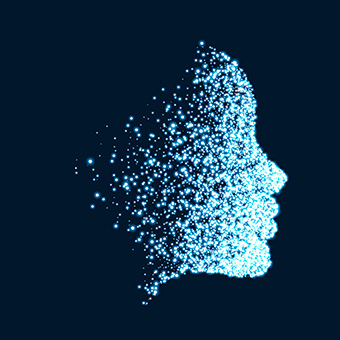Actividades dirigidas a centros de educación secundaria:
- Home
- The European Night of Researchers in Madrid 2022
- Actividades dirigidas a centros de educación secundaria:
Theater and science: beyond well-being

Theatrical show with talks and demonstrations by researchers
When? Friday, September 30, 2022, from 11 a.m. to 12 p.m.
Where? UC3M Auditorium. Leganes Campus. How to get?
Scientific popularization show on various aspects related to our well-being, such as water, pollution caused by planes, the health of our cells or the impact of technology on the perception of our body.
In this event, theatrical scenes alternate with talks by UC3M research staff on UC3M scientific projects funded by the European Research Council (ERC).
Show aimed at Secondary Education Centers. Due to the contents to be treated, it is recommended for students of 3rd and 4th year of ESO and 1st and 2nd year of Baccalaureate.
Reservation: through this electronic form
This activity has the support of the E.COnnect project and the Leganés City Council Youth Center.
Information about the scientific projects that will be presented:
-
Artificial intelligence and aerodynamics: learn to measure and control natural phenomena.
- Stefano Discetti. Dept. Bioing. and Aerospace Engineering from UC3M. ERC NEXTFLOW (Next-generation flow diagnostics for control; GA 949085).
- Summary:
We have tried to control some aspects of nature, such as the air, to improve our climatic well-being through various technologies. For example, controlling aerodynamic flows makes it possible to design more efficient planes or bridges that are more resistant to the wind. The challenge now is to measure everything more precisely and learn to control these technologies through Artificial Intelligence, which allows imitating what nature does through techniques such as reinforcement learning or genetic algorithms. -
Can rivers and trees have rights?
- Lieselotte Viaene. Department of Social Sciences of the UC3M. ERC RIVERS (Water/human rights beyond the human? Indigenous water ontologies, plurilegal encounters and interlegal translation; GA 804003).
- Summary:
Our planet is immersed in the Anthropocene, a time where we are not only already experiencing the consequences of climate change, but we are witnessing the consequences of a global change associated with the disappearance of biodiversity, the escalation of the social crisis, etc. . From the RIVERS project we want to show how from the field of Law we can access tools that help us stop the destruction of our environment. -
Intelligent materials to control the activity of our cells.
- Daniel Garcia Gonzalez. Department of Mechanics of Continuous Media and Structural Analysis of the UC3M. ERC 4D-BIOMAP (Biomechanical Stimulation based on 4D Printed Magneto-Active Polymers; GA 947723).
- Summary:
At MULTIBIOSTRUCTURES Lab we develop intelligent materials that are capable of interacting with our cells, altering their behavior and directing their functions. To do this, we apply magnetic fields that activate a mechanical response in the material that is transmitted to the cells, stimulating them. This new technology will make it possible to optimize the wound healing process or study complex processes such as tumor growth or brain trauma. -
Technologies for sensorial experiences of transformation of the body and applications for health.
- Ana Cut. Computer Department of the UC3M. ERC BODYinTRANSIT (Sensory-driven Body Transformation Experiences On-the-move; GA 101002711).
- Summary:
How we perceive our body, both its appearance and its capabilities, determines our way of moving, our interactions with the environment and social, our emotions and our physical and emotional health. But this perception of the body is not fixed, it is updated all the time through the sensory signals that our brain receives. In our laboratory we develop wearable technologies that allow us to change the perception of people's bodies, through the senses, creating what we call "Body Transformation Experiences". We study the effect that these technologies have on the perception, behavior and emotional state of people, both in the laboratory and in real life contexts. Through these technologies, opportunities are opened for the development of applications for wellness and health, for example for physically inactive people, with eating disorders, people with chronic pain or who have had a stroke and other people with negative perceptions of their body. Our research is also useful for the design of virtual reality avatars, intelligent clothing that adapts to people's perception, and even the design of robots.
